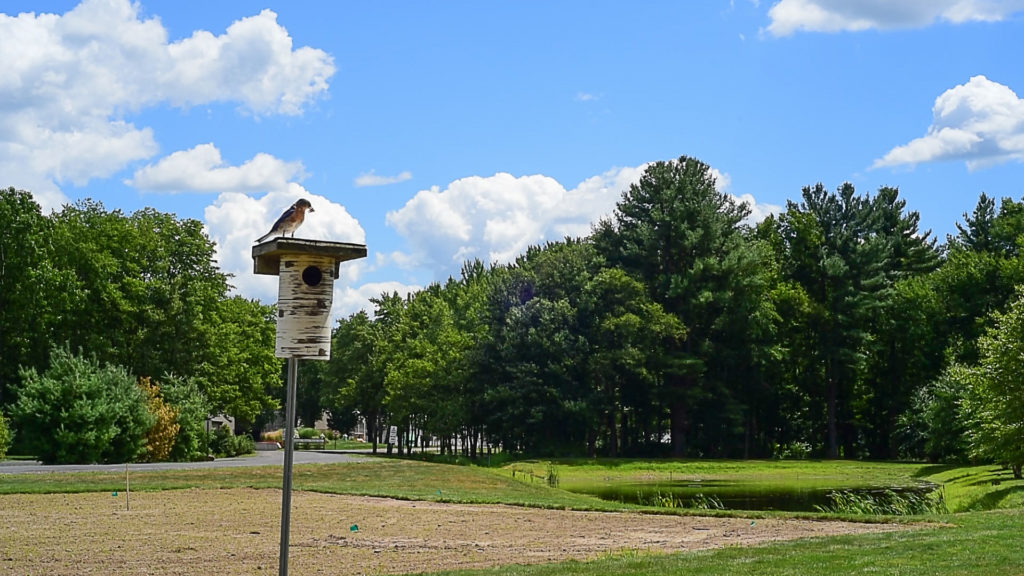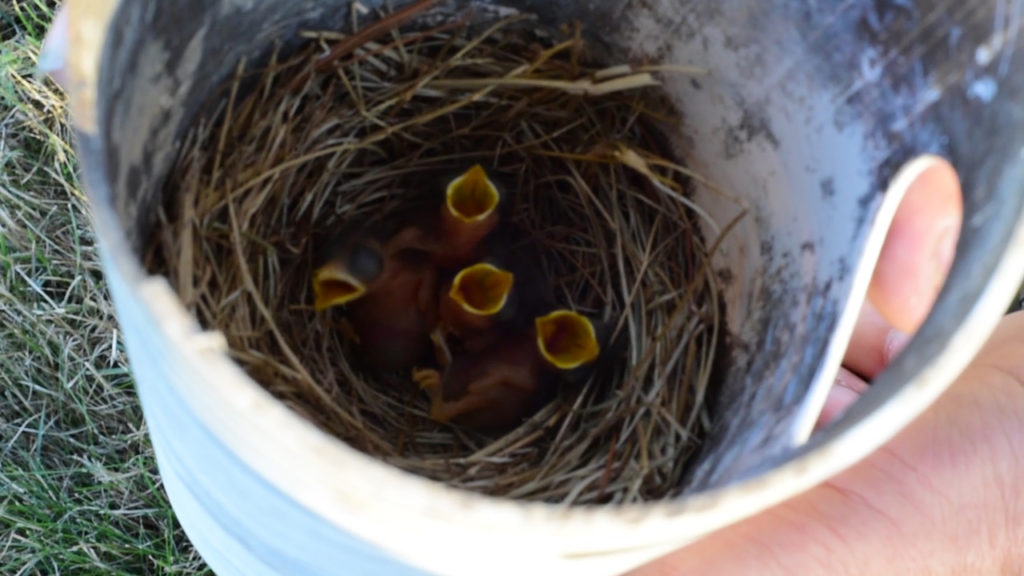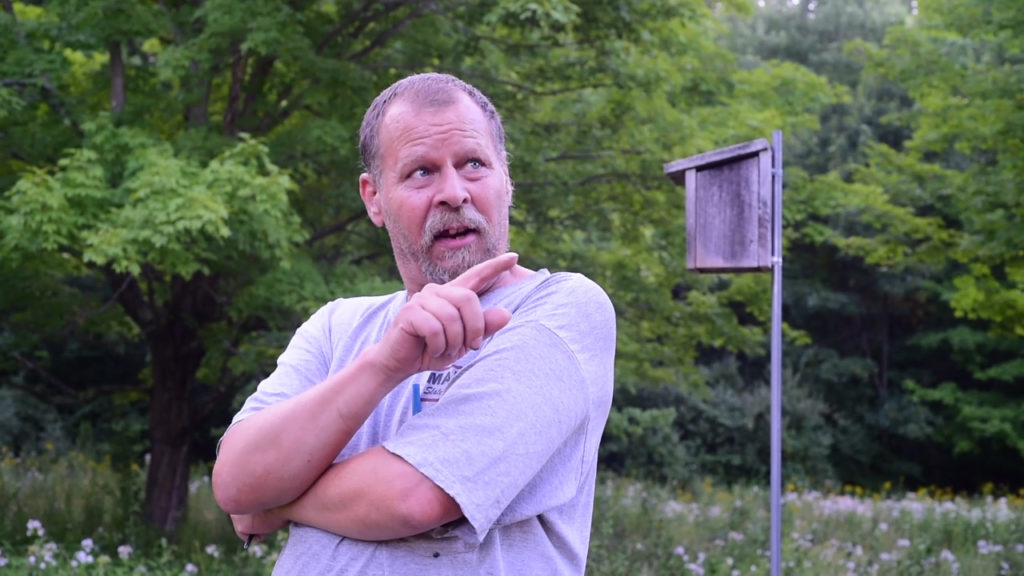If you’ve ever done any birdwatching in the quaint pastoral landscapes of the Wilbraham-Monson area, you may have noticed a striking abundance of bright blue little thrushes with vibrant orange and white stomachs merrily chasing bugs and perching on nest boxes and power lines.
But in the middle of the 20th century, they began to vanish from the fields and forest edges where they were typically found. Pesticides and competition from aggressive invaders like house sparrows took their toll on the bird’s population and their numbers declined to the point where seeing one became a rare treat. Though they’ve recovered reasonably well, the number of bluebirds in this rural area is still striking in comparison to other areas in the Valley.
That’s due largely to the efforts of Dana Lemon of Hampden. For 13 years, he’s been maintaining bluebird nest boxes from Somers, Connecticut, to Monson with the goal of giving bluebirds the upper hand in a changing world that doesn’t suit them as well as it used to.
Lemon has loved nature his whole life, and he has a penchant for the arcane. He’s also a railroad enthusiast and has traveled the country in search of them. But his greatest love is bluebirds, and he doesn’t see anything out of the ordinary about his interests.
“You get some people that like going on the green grass and [hitting] a white ball into a hole in the ground,” he says. “I like monitoring birds … it’s whatever floats your boat.”
He first became interested in bluebirds when he read an article in the local newspaper about the man who would prove to be his predecessor, an aging birder who worried that no one would care for the birds when he was gone. Lemon says he just couldn’t get the idea out of his head. Today, he estimates that he’s fledged over 1,000 birds. The number of bluebird boxes he now maintains across the region has grown from 38 his first year to 125 today. When he retires from his job as a third-shift welder in the next few years, he hopes to increase that number over 150.
“It’s a lot of work,” Lemon says. “But it’s worth every hour. One hundred and twenty-five boxes takes two full days to monitor completely.”
But to Lemon, the rewards outweigh the sacrifices.
“If the human beings on this planet were a little more like the bluebirds,” he says. “We would have a wonderful world.”
Contact Peter Vancini at pvancini@valleyadvocate.com.





